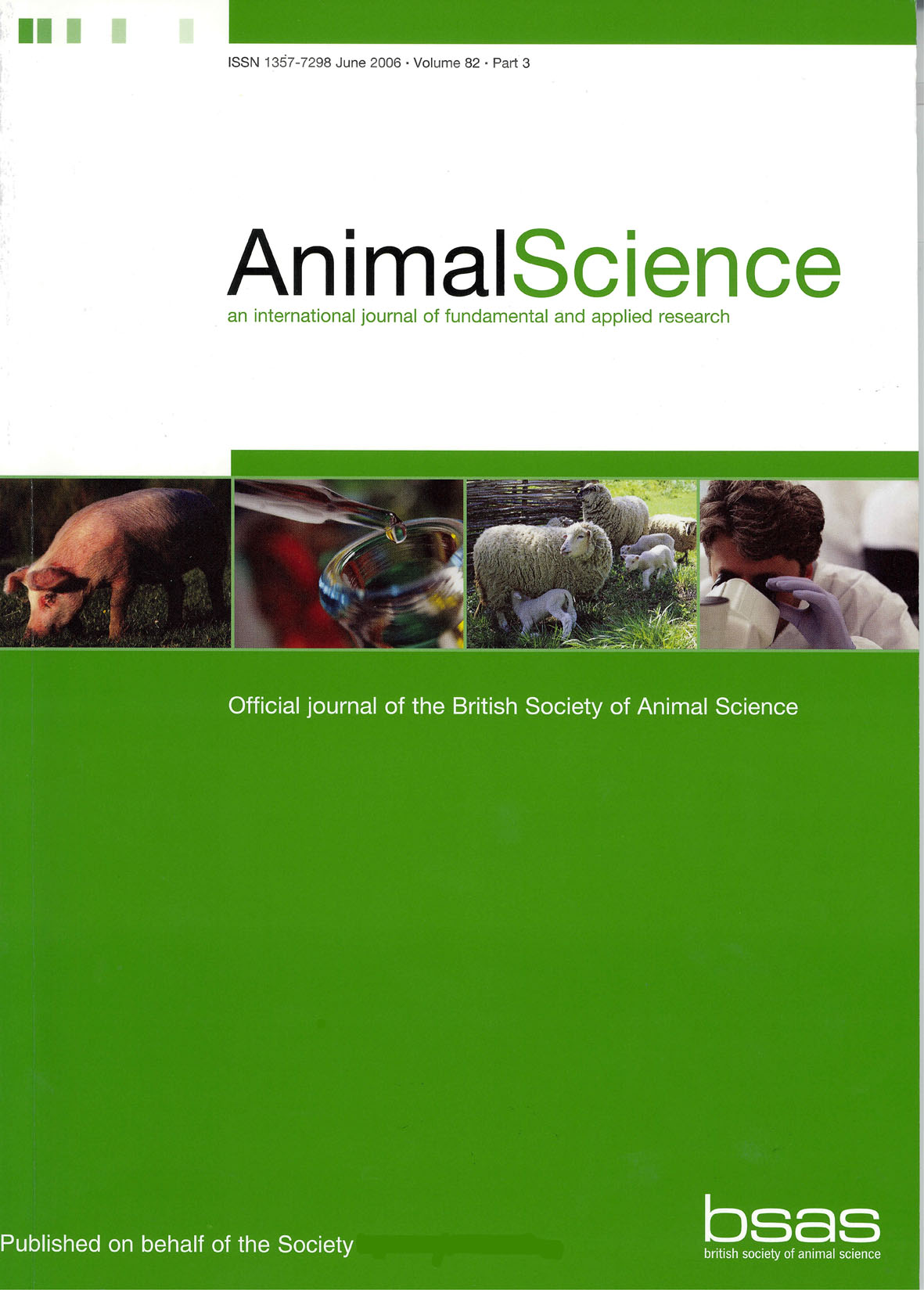Article contents
Effect of growth rate on mineral retention and body composition of growing lambs
Published online by Cambridge University Press: 02 September 2010
Abstract
Groups of wether lambs were grown at different rates from about 24 kg live weight to 50 kg, by feeding them different amounts of the same concentrate diet. The slow growing lambs had higher contents of protein, ash, calcium (Ca), and phosphorus (P), and less fat and magnesium (Mg) than other groups. Differences in composition were significant between slow (120 g/day) and fast growth (230 g/day; P < 0-05) but not always between intermediate (160 g/day) and other growth rates. The differences became small and insignificant when data were expressed on a fat-free basis except for Mg which decreased with slow growth. Ash, for example, increased from 47 g/kg fat-free gain with fast growing animals to 54 g/kg with slow growth. Mg decreased from 0·44 g/kg fat-free gain with fast growth to 0·24 g/kg with slow growth. The data support the view that the ratio of ash to fat-free empty-body increases only slightly with age.
The basic diet contained 3·9 g Ca per kg dry matter and the effect of a substantial supplement of calcium carbonate on lambs growing at the fast rate was to increase their retentions of ash, Ca and P by a factor greater than 1·25. There are alternative explanations for this finding. One possibility is that the availability of Ca in the basic diet had been reduced by unknown factors. It is also possible that the supplementary carbonate altered the acid/base status of the animals and resulted in conditions which favoured skeletal mineralization.
- Type
- Research Article
- Information
- Copyright
- Copyright © British Society of Animal Science 1989
References
REFERENCES
- 9
- Cited by


